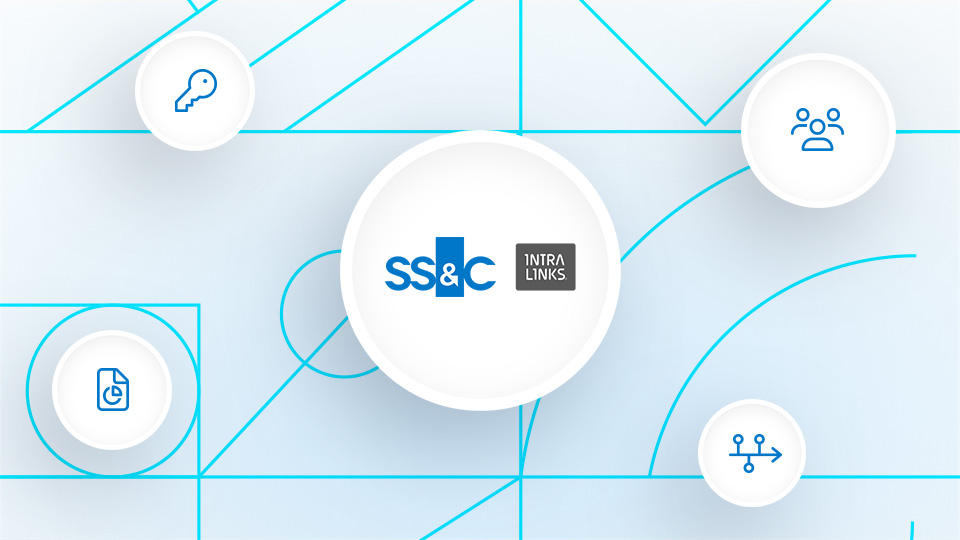Leading the Charge: Two Female Finance Execs on the Front Lines of Gender Equity
To mark International Women's Day 2023, we spoke with two accomplished Chinese finance executives to discuss perspectives on gender diversity in the workplace.
SS&C Intralinks recently spoke with two inspiring female leaders, Lu Wang, director of EmergeVest, and Shanice Li, manager of funds management and strategic business development at Gaolu Group, to explore the state of gender equity in asset management and dealmaking in the Greater China region. Their insights shed light on the progress made in promoting gender equity in the industry, while also highlighting the work that still needs to be done.
SS&C Intralinks: Could you share your views on the current state of gender equity in asset management and dealmaking, respectively?
Shanice Li: I would say the asset management industry is ahead with respect to gender equity. Female managers are given equitable opportunities to advance their careers, and to be recognized and promoted. I have come across many female leaders and investment decision-makers across capital raising, asset, property and construction management.
Lu Wang: While there has been progress in terms of gender diversity in dealmaking, I believe that women are still underrepresented. In terms of equity, there is still a significant gender pay gap in the industry.
In addition, there are very few female founders receiving funding. To truly achieve gender equity in dealmaking, there needs to be more focus on creating an equitable environment. This includes initiatives such as the implementation of gender quotas, greater investment in female-led firms and the creation of more opportunities for female founders. It is important that the commitment starts from the organizational level.
In what circumstances do male dealmakers have an advantage, if at all?
Lu Wang: Male dealmakers typically have easier access to capital and resources than their female counterparts due to several factors. Firstly, the traditional culture of dealmaking has been dominated by men, which has resulted in a lack of diversity in the sector and an unequal power dynamic. Male dealmakers also tend to benefit from the “old boys’ club” mentality, a social and cultural phenomenon in which men in positions of power maintain their influence and privilege by networking and forming exclusive relationships with other men. Finally, male dealmakers may be more likely to be recognized or rewarded for their work in the M&A sector. Luckily, the power dynamics of the M&A sector are changing, and female dealmakers are gaining more ground and recognition every day.
Gender equality has become a priority in corporate governance for many global organizations. Can you share if your firm has any governance structures defining gender equity?
Lu Wang: Yes. EmergeVest is a signatory to the Institutional Limited Partners Association (ILPA)’s worldwide Diversity in Action (DIA) initiative. The DIA framework activities underscore key components including talent management, investment strategies and industry engagement.
Besides, in our flagship portfolio company EV Cargo, a global technology-enabled supply-chain and logistics execution platform for the world’s leading brands, we have set a target to create a diverse, equitable and inclusive workplace enabling opportunities for all:
- At least 25 percent of senior management positions held by females in 2023
- Females to make up 25 percent of governance bodies by 2023
- Gender pay gap will be less than two percent by 2023
Shanice Li: While there isn’t yet a formal governance policy in place at Gaolu Group, the firm is certainly conscious of gender equity. Female leaders make up over 30 percent of our leadership team across all functions. The firm also does a good job of ensuring a gender-friendly working environment. For instance, we organize gender-equity panels and “women-in-the-workspace events” from time to time to feature and recognize female professionals within the firm.
According to a recent PwC study, environmental, social and corporate governance (ESG)-oriented assets under management (AUM) are expected to be tripled in Asia Pacific by 2026. Would you agree that female asset managers and dealmakers are more likely to promote ESG and sustainability impact investment concepts compared to their male counterparts?
Shanice Li: Yes, female general partners (GPs) and limited partners (LPs) tend to pay more attention to green building (environmentally sustainable) concepts while the common mindset would be more concentrated on economic benefit or investment returns.
Lu Wang: I would also agree. Female dealmakers are more likely to pay attention to the ESG implications of their investments, as well as to the potential social and environmental benefits that can be achieved. They are more likely to take a broad view of investment opportunities, considering both financial and societal impacts, integrate ESG and sustainability criteria into their investment decision-making processes and focus on long-term investing.
Conclusion
There is a growing awareness that both gender equity and equality are the cornerstones of sustainable growth. If women account for 50 percent of the population, then fair representation and participation of women and men are crucial in maximizing the full potential of human capital in global asset management and dealmaking.
Multiple studies have shown that gender-diverse investment teams outperform others. Diverse viewpoints typically lead to more innovative, balanced and informed decisions. According to a study conducted by consulting firm McKinsey & Co., companies in the top quartile for gender diversity on executive teams were 25 percent more likely to outperform on profitability.
To learn more on the topic, click here to read Gender Diversity and M&A Dealmaking 2022, an examination of gender diversity in M&A dealmaking conducted in association with the M&A Research Centre (MARC) at Bayes Business School, City, University of London and Mergermarket. The report draws on data from more than 11,000 announced M&A deals spanning between 2010 and 2021 and features commentary from senior dealmakers.



